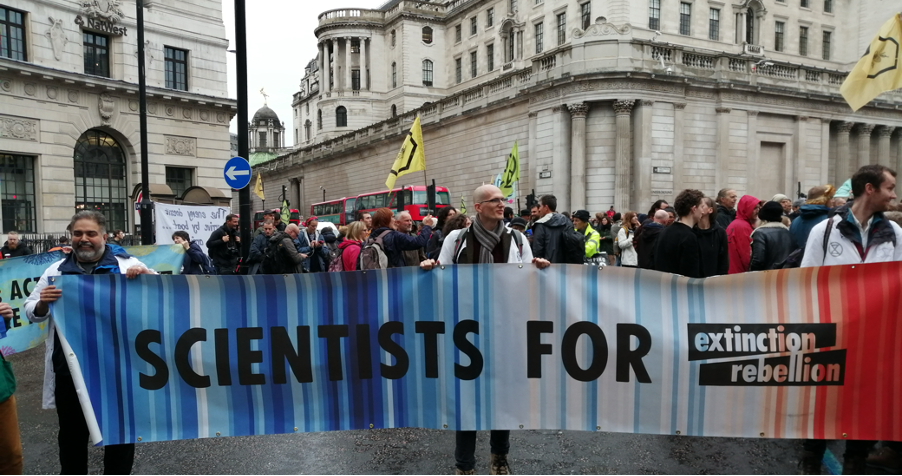
Research
Current research topics build on the working paper - Universities as Sites of Activism and Protection – written to launch the UNESCO Chair, and consultations with the network.
Featured Research Projects
-

Feminist crisis response framework
The Urgent Action Sister Funds are partnering with the Centre for Applied Human Rights to articulate the feminist crisis response they practise via their grantmaking, accompaniment and advocacy supporting women, trans, and non-binary activists and organisations in crisis and conflict contexts. This collaborative project seeks to address the lack of academic literature on feminist funds and explore ways that philanthropic actors can more effectively respond to both emergent, and slow-building, harms and crises.
-

Climate change activisms by academics: Opportunities, strategies and risks
This research investigates responses of academics to global environmental climate change. It has focused on the extent to which academics adopt a range of activisms, advocacy, activist practices and stances with the consequential opportunities, strategies and risks.
Image source: Stephen Langford
Ongoing Research Projects
-

Applied knowledge and activist pedagogies
The first case study led by Mahidol University, Thailand, builds on a mapping of human rights and peacebuilding education in Southeast Asia, to go beyond what courses are available to explore how human rights is taught. Specifically, it will look at the ways in which activists are included in such education, and the benefits for students and activists.
-

Activism on campus (scholar-activists, student activists)
Initial projects are looking at gender-based violence, and responses to such violence, at four universities: Makerere University, Uganda; University West, Sweden; University of the Western Cape, South Africa; University of York, UK (see the book chapter: Universities as Sites of Protection: Insights from the Global South on Gender-Based Violence) - and the increased pressure for academics working on climate change to adopt activist positions, and the associated implications and risks.
-

Universities and long-term activist resilience and reinvention
Research on Egypt and Zimbabwe is exploring the role of universities in-country, regionally and internationally in supporting the resilience and sustainability of activists and movements over a long period of time.
-

Universities in transition
Partners at the University of Buenos Aires are researching the roles a university can play in political transitions from authoritarian rule or conflict, analysing the innovations possible during the initial transitional window of opportunity, and the challenges associated with defending these gains over time.
-

Rethinking protection
Research on this theme explores links between the protection of people, values and different forms of knowledge. It will also assess the potential of a move beyond ‘protection from’, which is reactive, manages risk and security, and focuses on individuals, to ‘protection to’, which is proactive, focuses on sustainability, and prioritises organisations, communities and systemic change (see the Policy Brief: Conceptualising Protection: Universities as Sites of Protection).
-

Human rights leadership in challenging times
With the corporate and business world having supplied much of the basic material for the development of leadership theory and leadership training courses, including in the human rights sector, this project aspires to co-produce new tools or frameworks.
Past Human Rights Defender Research
-

The security and protection of human rights defenders at risk
This project focuses on the experiences of human rights defenders in Colombia, Mexico, Kenya, Egypt, and Indonesia. It explores topics such as the types of risks defenders face and why; factors that make them feel secure and insecure; their security management practices; norms about wellbeing; and perceptions of 'human rights' and 'human rights defenders' in these five countries.
-

'Ritualising' protection in conflict
Indigenous peoples in Colombia are caught in the midst of an armed conflict that has lasted for more than fifty years. Despite an elaborate protection architecture, the state has so far been unable to effectively protect them. Hence, in order to survive, indigenous communities have had to devise their own self-protection strategies.
-

The wellbeing of human rights defenders
The wellbeing of human rights defenders is a critical - but still often neglected - issue in the human rights movement.
Human rights defenders can also have very different ways of approaching wellbeing. It is important that we do not presume that certain methods work for everyone and to recognise that experiences of wellbeing are also gendered.
-

A global network of national human rights defenders focal points
The International Service for Human Rights (ISHR) commissioned the Hub to undertake a study on how a Network could meaningfully contribute to the implementation of the Human Rights Defender Declaration in diverse national contexts.
-

Mapping protection architectures for human rights defenders at risk
The aim of this project was to map ‘protection architectures’ in three regions – Europe, the Middle East and Southeast Asia – that is, to identify actors involved in protecting human rights defenders at risk, the types of interventions they provide, the challenges these protection actors face, and to identify key gaps and priorities for strengthening the international protection regime in these regions so that human rights defenders can work with greater security, wellbeing and sustainability.
-

Temporary protective relocation
This research project asked what Shelter and Relocation Programmes contribute towards enhancing civil-society initiatives, critically cultural scenes and their key players; how the effect of these programmes be measured and possibly improved; and which accompanying measures are particularly effective to enable a meaningful stay for actors at risk in the “shelter”, a safe return to their home country with new perspectives and/or a successful integration in host communities.
